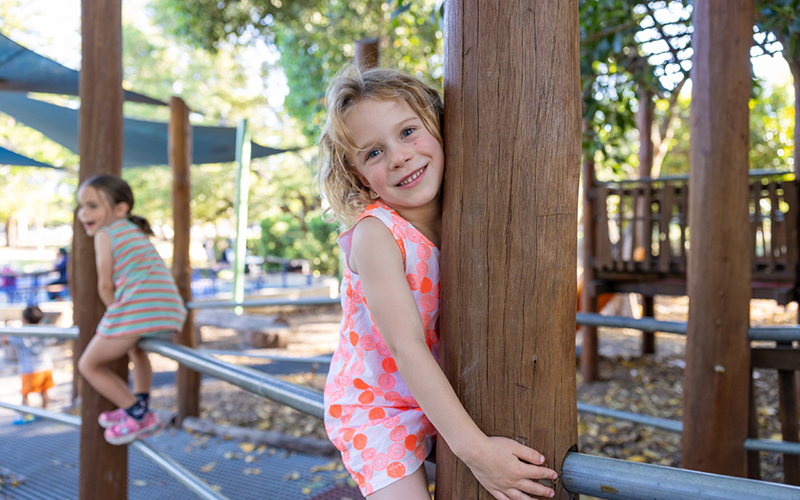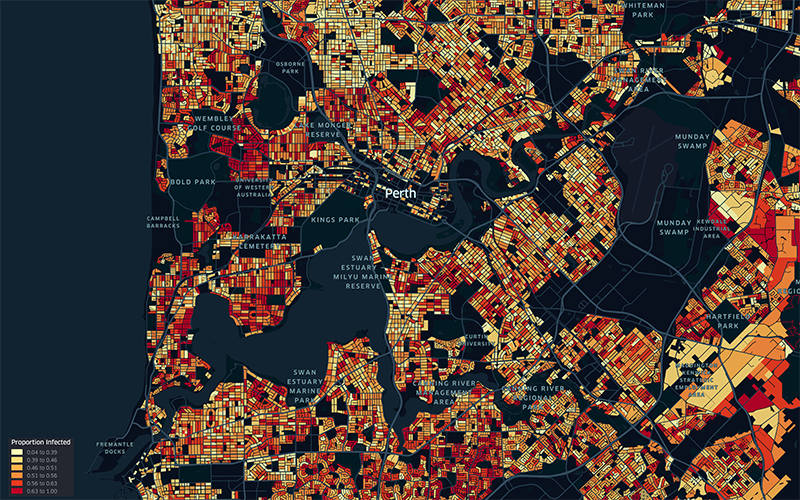Search
Research
A cluster randomized trial of interferon ss-1a for the reduction of transmission of SARS-Cov-2: protocol for the Containing Coronavirus Disease 19 trial (ConCorD-19)SARS-CoV-2 infection rapidly spreads in populations due to the high rates of community transmission. Interrupting the shedding of SARS-CoV-2 may reduce the incidence of Coronavirus Disease 19 (COVID-19).
Research
Impact of Coronavirus Disease 2019 Public Health Measures on Detections of Influenza and Respiratory Syncytial Virus in Children During the 2020 Australian WinterPublic health measures targeting coronavirus disease 2019 have potential to impact transmission of other respiratory viruses. We found 98.0% and 99.4% reductions in respiratory syncytial virus and influenza detections, respectively, in Western Australian children through winter 2020 despite schools reopening. Border closures have likely been important in limiting external introductions.
Research
Australia needs a prioritised national research strategy for clinical trials in a pandemic: lessons learned from COVID-19The emergence of the novel severe acute respiratory syndrome coronavirus 2 (SARS-CoV-2), sparking a global pandemic, has driven an imperative to quickly design and conduct treatment studies. We strongly propose a national, coordinated approach for randomised controlled trials (RCTs) for coronavirus disease 2019 (COVID-19), future pandemics and inter-pandemic periods in Australia.
Research
Lessons from COVID-19: A reflection on the strengths and weakness of early consensus recommendations for pediatric difficult airway management during a respiratory viral pandemic using a modified Delphi methodThe authors recognized a gap in existing guidelines and convened a modified Delphi process to address novel issues in pediatric difficult airway management raised by the COVID-19 pandemic. The Pediatric Difficult Intubation Collaborative, a working group of the Society for Pediatric Anesthesia, assembled an international panel to reach consensus recommendations on pediatric difficult airway management during the COVID-19 pandemic using a modified Delphi method.
Research
Weighing the Risks of Perimyocarditis With the Benefits of SARS-CoV-2 mRNA Vaccination in AdolescentsChristopher Blyth MBBS (Hons) DCH FRACP FRCPA PhD Centre Head, Wesfarmers Centre of Vaccines and Infectious Diseases; Co-Head, Infectious Diseases
Research
A modelling approach to estimate the transmissibility of SARS-CoV 2 during periods of high, low, and zero case incidenceAgainst a backdrop ofwidespread global transmission, a number of countries have successfully brought large outbreaks of COVID-19 under control and maintained near-elimination status. A key element of epidemic response is the tracking of disease transmissibility in near real-time. During major out-breaks, the effective reproduction number can be estimated froma time-series of case, hospitalisation or death counts. In low or zero incidence settings, knowing the potential for the virus to spread is a response priority.

News & Events
Australia one step closer to COVID-19 shot for under 5sAustralia’s TGA has granted a provisional determination to Pfizer, allowing the pharmaceutical company to apply for approval to extend its COVID-19 vaccine to children aged 6 mths - 4 yrs.

News & Events
Sophisticated new modelling suggests keeping mask mandate could prevent 147,000 COVID-19 casesWA’s current Omicron COVID-19 outbreak could jump by 147,000 cases if mask mandates are abandoned before the Easter long weekend, according to sophisticated new modelling.

News & Events
COVID-19 risks explained for babies, children and pregnant womenMany parents may be feeling anxious and confused about what COVID-19 means for pregnant women, babies and children.

News & Events
Funding boost for digital health programThe Kids Research Institute Australia is pleased to share in $490,000 in State Government funding designed to provide vital support to WA’s innovation sector in the wake of COVID-19.
